Talk about inflation.
In 1977, when Liverpool sold two-time European player of the year Kevin Keegan to Hamburg they charged the German club a 500,000 pound transfer fee.
In 2009, as the world struggled to emerge from the worst financial crisis in more than half a century, Manchester United sold European player of the year Cristiano Ronaldo to Spanish club Real Madrid. The fee: 80 million.
Ronaldo may be a goal-scoring machine, but is he worth 160 times more than Keegan? That increase outstrips the UK inflation rate between 1977 and 2009 by a factor of 35. If costs in soccer had mirrored the real world, Ronaldo's transfer fee would have been around 2.3 million pounds.
But soccer finances rarely resemble reality. While no transfer has broken Ronaldo's record in the past two seasons, deals worth 30 or 40 million pounds are now commonplace. Even a journeyman player can cost 20 million pounds. And that's before player wages, which have also exploded. In the final year of Ronaldo's 6-season contract with Madrid, the Portuguese superstar will make 556,000 pounds a week.
Photographs: Getty Images
New rules to force clubs to pay out no more than they earn
Image: The UEFA Champions League trophyEuropean football's governing body UEFA wants to change that. To end lavish spending it has devised new regulations to force clubs to pay out no more than they earn.
The new rules, which UEFA calls Financial Fair Play (FFP), begin this month with the start of the European season. Clubs will have two years to begin balancing their books. If they don't meet FFP targets from the 2013/14 season, UEFA says it will expel them from club soccer's premier Champions League competition. That would lose a club tens of millions of euros in television revenue plus the global exposure that helps generate millions more in merchandise sales.
UEFA General Secretary Gianni Infantino believes change is vital. In an interview at UEFA headquarters in Nyon, Switzerland, Infantino said the global financial crisis and years of losses in European soccer -- 1.2 billion euros (1.1 billion pounds) in 2009 alone -- have convinced even club bosses that they can't go on spending more and more.
"They were as worried as we were about the escalation of finances in club football. We had to find a way to make sure that club football was sustainable in the future," Infantino, 41, said. "If this continues and nothing is done, the whole system will collapse."
Despite the impending regulations, though, most of Europe's biggest clubs -- the likes of Manchester United, Chelsea, Barcelona, Real Madrid, Inter Milan -- have continued to spend. Sceptics think the top clubs will find clever ways to sidestep the new regulations and doubt that UEFA will ever stop a club like Barcelona or Manchester United playing in big competitions, because it would alienate tens of millions of fans and hit UEFA's own revenues.
"If I was a betting man I would say one of the rich benefactor clubs will fail to meet the regulations first time around," said Neil Patey, a soccer industry adviser at global accountancy firm Ernst & Young. "I think there's a high chance Chelsea, Man City and Inter Milan will fail (to balance their books). If Barcelona and Manchester United failed, UEFA would find it difficult to not have them in European competition and I think UEFA are praying that doesn't happen."
Owners may bypass the rules by pumping cash into a club
Image: Michel PlatiniThe driving force behind Financial Fair Play is former French player Michel Platini, who is proving almost as influential in his current role as UEFA President as when he inspired France to victory in the 1984 European Championships.
Platini and Infantino say their aim is to loosen the link between spending power and on-pitch success. The connection has become more pronounced in recent years, especially in the English league, as wealthy owners have poured hundreds of millions into clubs in an attempt to win silverware.
Russian oligarch Roman Abramovich, for instance, bought London club Chelsea in 2003 and spent 600 million pounds in his first five years as owner. Since his takeover the club has won three Premier League titles and three FA Cups, and appeared in the 2008 Champions League final.
In the past couple of years, Abramovich's big spending has been overshadowed by Manchester City owner Sheikh Mansour, half brother of the ruler of Abu Dhabi. Mansour has forked out more than 600 million pounds since buying Manchester's second club in 2009. Result: City won last season's FA Cup, the club's first trophy since 1976.
On paper, the new rules will hit such clubs hard, forcing their deep-pocketed benefactors to stop injecting their private cash and instead rely on what the club earns.
But some soccer finance experts say owners may bypass the rules by pumping cash into a club and declaring it as income. One way to do this would be through inflated sponsorship deals.
"Theoretically, a club's owner could get a 'friendly company' to pay well over the odds, whether it's for shirt sponsorship or stadium naming rights, which would allow them to grow revenues in a big way," said Ernst & Young's Patey.
Man City posted a loss of 123 million pounds last year
Image: Manchester City fansEven before the rules take effect, rival clubs in the English Premier League have pointed at Manchester City, who posted a loss of 123 million pounds last year. City recently agreed a 10-year, 400 million pound deal with Etihad Airways -- part-owned by Abu Dhabi's government and founded by Sheikh Mansour's half brother. The club's ground will be renamed Etihad Stadium, Etihad will be on signs at a new training facility and a shirt sponsorship deal will be extended.
The deal -- City described it as "game-changing" -- is the biggest stadium naming rights agreement ever, topping the 360 million pounds Citigroup paid to put its name on the stadium of US baseball team the New York Mets. But given that City has struggled to stay in England's top division over the past decade, is such sponsorship based in reality?
Arsene Wenger, manager of London club Arsenal, which in 2004 struck a 90 million pound stadium and shirt sponsorship deal over 15 years with Emirates Airline, responded with a hint of sarcasm that his club "must have done a bad deal".
Speaking from a pre-season tour in Norway, Liverpool's commercial director Ian Ayre said it was critical that UEFA applied the FFP criteria rigorously to all clubs. "It will be potentially devastating to clubs that fall into line if others take advantage of it and are allowed to," he said. "That would create a very uneven playing field and would just be a disaster for everyone."
City declined to comment on criticism of the deal, but chief executive Garry Cook said the club has been talking with UEFA about the issue.
"We have had several meetings with UEFA about our plans and they are very supportive of Manchester City's ambition," he told reporters at a news conference to announce the Etihad agreement.
'The train has left the station and is not stopping'
Image: UEFA General Secretary Gianni InfantinoInfantino, who previously worked as an adviser to the Italian and Spanish leagues, insists the rules will apply to everyone.
"The train has left the station and is not stopping," he said, sitting in a conference room with a view across Lake Geneva to Mont Blanc. "We have rules and we apply them to all in the same way. The clubs know the rules. They know what they have to do."
UEFA says it is looking at City's Etihad sponsorship deal to decide if it has been artificially inflated. Valuations will be assessed by the federation's Financial Control panel, chaired by ex-Belgium Prime Minister Jean-Luc Dehaene and made up of accountants, auditors and lawyers.
"If I'm telling you that the shirt sponsor(ship) of Wigan is 10 times higher than the shirt sponsor(ship) of Manchester United then I think even a non-expert would say 'OK, you don't bullshit me'," said Infantino. "A fake sponsorship deal would certainly be analysed and would not be accepted by the panel."
To prevent manipulation of the rules, UEFA will examine an investor's connection to a club, while transactions between club and sponsor will be compared with the wider market.
Still, lawyers believe there are grey areas.
"If a company says 'We're genuinely trying to build a global brand, this is a global club and we think this is what this deal is worth,' it becomes quite difficult for UEFA," said Daniel Hall, a partner at global law firm Eversheds. "It's something that is very much open to subjective opinion and that is where there may be legal disputes."
Even the rules themselves have some built-in wiggle-room -- at least at first. Though clubs are meant to ensure they break even, they will be allowed an "acceptable deviation" of 45 million euros in the first few years. That will fall to 30 million euros over three years before a UEFA committee decides on further reductions.
In another hint that UEFA will be flexible, Infantino suggests any guaranteed money from sponsors should outweigh concerns about market value. "From a pragmatic point of view it's still better to have a sponsorship contract with a committed amount even if it's too high," he said days before the City deal. "At least it's a contract, it's black and white, you will receive the money, and the financial situation is safer than it is today where you just have a loan by an owner or a promise."
Europe's top clubs could follow the example of their German rivals
Image: Bayern Munich fansAt the moment, television rights are the biggest source of income for most top clubs. That's especially true in Spain where Europe's two richest clubs, Real Madrid and Barcelona, are able to sell their broadcasting rights individually, in contrast to England's Premier League and most other European leagues, where rights are sold collectively and revenues shared out. Both Barcelona and Real Madrid make around 150 million euros a year from television -- well above the 60 million pounds English Premier League champions Manchester United earned last season.
Financial Fair Play is meant to push clubs to look at other ways to expand their revenue streams. The new rules will not count any spending on infrastructure improvements, for instance. That should encourage owners to copy clubs like Germany's Bayern Munich, which moved to its state-of-the-art, 69,000-seat Allianz Arena in 2005, and is now the fourth richest club in Europe with revenues of 323 million euros in 2010.
Bayern Munich earn 67 million euros a year in matchday revenues. Compare that with Italy's AC Milan and Inter Milan, which share the 85,000 seat San Siro stadium -- constructed in 1925 and in desperate need of renovation -- and bring in revenue of about half that.
In fact, Europe's top clubs could do worse than follow the example of their German rivals, most of whom make money. The German soccer federation requires its clubs to have a community-based ownership structure -- fans control 50 percent of shares plus one -- to avoid the financial instability and overspending the sometimes comes with rich owners.
"We did not need to do anything to prepare for these rules because we already meet the criteria by 150 percent," said Hans-Joachim Watzke, chief executive of current Bundesliga champions Borussia Dortmund. "We have been having positive results and reducing our debt for years and do not have any outside money flowing in."
Clubs might also do more to develop their brands globally. Chelsea Chief Executive Ron Gourlay said the club wants to make more money overseas, because increasing revenue at home would be tough.
"The opportunity we have is very much through our sponsors. That's where we expand the brand in America and the marketplace in Asia. We need to be in the marketplace as much as possible," he said in Asia in June.
Barcelona has the biggest wage bill of all European clubs
Image: Barcelona players celebrate winning the 2010-11 UEFA Champions LeagueOf course, the biggest single way for clubs to balance their books would be to cut player wages, which account for around two-thirds of clubs' total spending across Europe's biggest five leagues.
Barcelona has the biggest wage bill of all European clubs, spending 235 million euros in the 2009/10 season, according to a report by the University of Barcelona entitled "Spanish Football in the Throes of Crisis". Thanks to its lucrative broadcasting deal, though, the share of its income that went on player wages was relatively low at 59 percent.
In contrast, clubs supported by benefactors sometimes end up paying more for players than total club turnover. Manchester City spent 107 percent of revenue on wages last season, Inter Milan 104 percent.
To encourage clubs to slow wage growth and start training more local talent instead of buying in expensive players, any spending on youth will also be exempt from the new rules.
Talk of a breakaway league, that would be formed by big clubs disgruntled with the way soccer is run, cropped up again last month. But Arsenal's Chief Executive Ivan Gazidis dismisses this. "I think there are major teams that wouldn't be a part of that. There is so much sentiment in favour of these regulations, so I don't see a credible threat there."
Gazidis, who sits on the European Club Association (ECA) board, helped fine-tune the FFP proposals and acknowledges that any system which effectively restricts soccer's free market will have flaws.
"It is not a perfect system -- in fact it may be the worst possible system, except for all the others," said Gazidis, who spent 14 years working for US Major League Soccer before joining Arsenal in 2009.
UEFA's Infantino is equally dismissive of a rival league, chuckling at the suggestion. "Break away to what?" he asked. "They have already the best competition� It's called the Champions League."
As the new rules bite, though, tensions between Europe's governing body and the game's biggest clubs could rise. Much will depend the rule-makers retaining credibility. "I think UEFA will lose face for generations if they don't enforce these rules," said Ernst & Young's Patey.
Infantino said the issue is simple: at some point reality has to kick in.
"Football is somewhat irrational. Those who are involved in football in their ordinary businesses are very sound businessman. In football sometimes they seem to go mad. We need to bring a bit of rationality back."

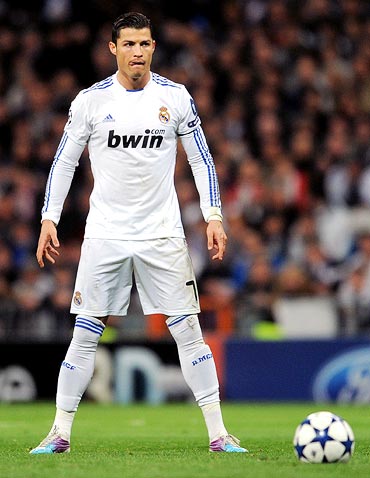
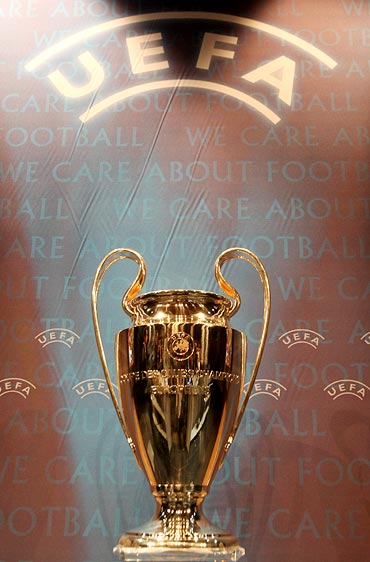
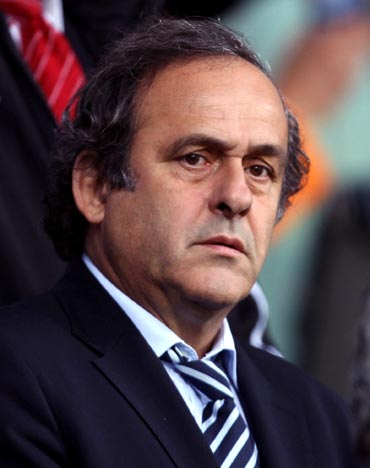
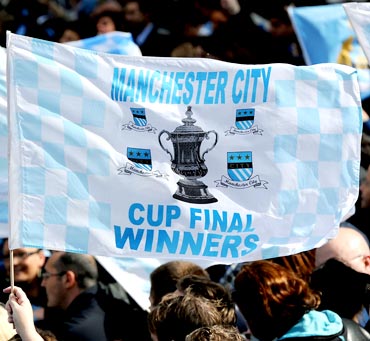

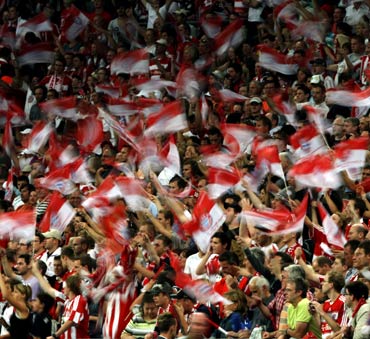


Comment
article